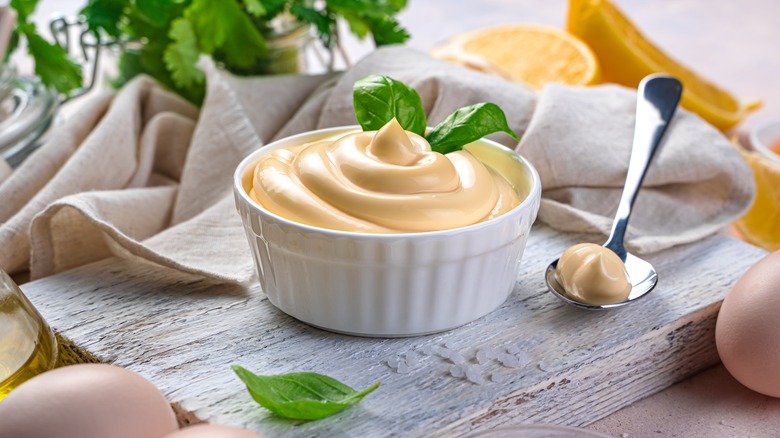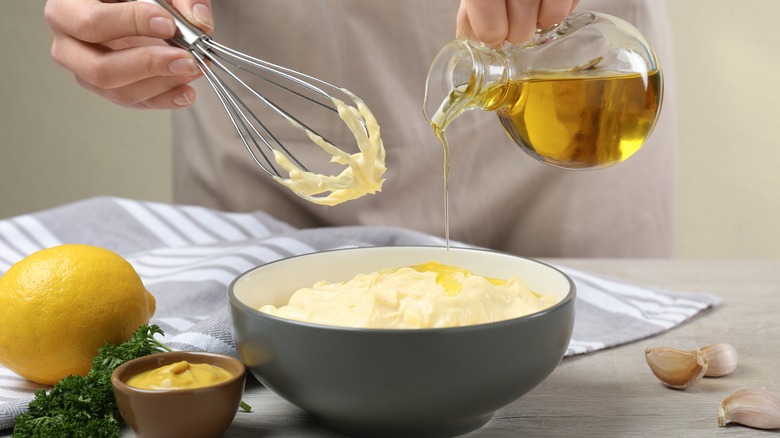The One Type Of Oil You Shouldn't Use To Make Mayonnaise
Mayonnaise is a simple condiment that can easily level up whatever you're making, adding creaminess to dips or dressings or bringing a bit of tang and moisture to your sandwiches. While many mayo lovers will have a jar of their favorite brand available in the fridge at all times, if you're a fan of mayonnaise, you need to try making your own version from scratch at least once.
Luckily, not much is required to make the homemade version — typically, all you need is eggs; some type of acid, such as lemon juice or vinegar; often a bit of mustard; and oil. They're items you very likely already have in your fridge and pantry. When combined, the ingredients emulsify and create that signature smooth, creamy texture that you expect from mayonnaise.
There are just a few things to be mindful of in terms of food safety when making homemade mayonnaise. As the U.S. Department of Agriculture explains, you can avoid any potential safety risks that come along with consuming raw eggs by whipping up your mayonnaise with either pasteurized egg products or raw, in-shell eggs specifically labeled as pasteurized. And, you'll want to use it up rather quickly — they recommend not keeping your batch of homemade mayonnaise in the refrigerator for longer than about four days.
Before you go racing to your pantry to gather ingredients, though, make sure you're not using this one particular type of oil if you want your mayonnaise to turn out perfectly.
Avoid this oil in your homemade mayonnaise
While you need to use the right proportions of acids, fats, and emulsifiers in order for your homemade mayonnaise to have the ideal texture, there is some flexibility in what exactly you incorporate. For example, some individuals prefer using fresh-squeezed lemon juice for the acidic component, while others favor a particular type of vinegar. When it comes to the oil you use, there are quite a few varieties that work just fine; but there's one common oil that you want to steer clear of.
While olive oil is prized for its versatility, many olive oils (and extra-virgin olive oil in particular) do have a distinct taste. You may not notice it when you're just using it to pan-sear some proteins or roast some vegetables; but, in mayonnaise, you'll likely be able to taste something a bit off in the mixture.
Save the aromatic and flavor-packed oils such as olive oil for drizzling and garnishes; and, instead, make your mayonnaise using a neutral oil — vegetable, canola, grapeseed, avocado, or safflower oil are all great suggestions. These will help give your mayonnaise the flavor and texture it needs without being too overpowering.
Your choice of oil also influences the nutritional content of your homemade mayonnaise — while many store-bought mayonnaise brands use soy oil, which packs a lot of omega-6 fats, an option like avocado oil features heart-healthy oleic acid.

